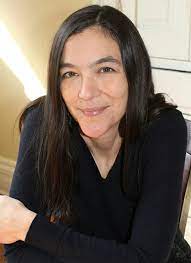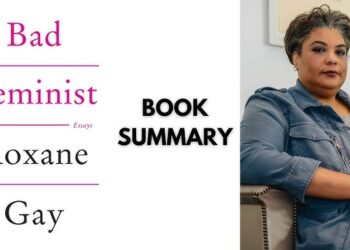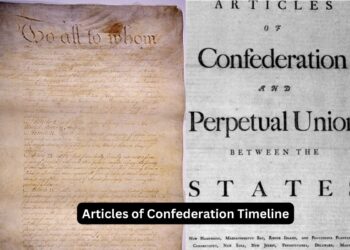Wrong Poets Society Essay by Joyelle McSweeney
Wrong Poets Society Essay by Joyelle McSweeney –In “Wrong Poets Society,” Joyelle McSweeney embarks on a bold journey into the realm of poetic rebellion, questioning established norms and conventions within the literary landscape. Through a dynamic fusion of personal introspection, incisive critique, and innovative poetic exploration, McSweeney challenges readers to reconsider the boundaries of poetic expression and the transformative potential of poetic resistance. This essay summary seeks to unravel the central themes, arguments, and innovations presented by McSweeney in “Wrong Poets Society.”
Unveiling the Title’s Provocation:
McSweeney initiates her discourse by unraveling the provocative title, “Wrong Poets Society,” which provocatively echoes the renowned film “Dead Poets Society.” However, McSweeney diverges from expectations by embracing the notion of being “wrong” and deviating from conventional norms. This title serves as a rallying cry for poetic rebellion, urging a departure from traditional paradigms and an embrace of disruptive creativity.
The Essence of Poetic Rebellion:
At the core of McSweeney’s essay lies a fervent exploration of poetic rebellion as a means to challenge entrenched hierarchies and disrupt the status quo. Drawing inspiration from avant-garde movements and experimental traditions, McSweeney celebrates poetry’s capacity to provoke, unsettle, and inspire change. Through her own poetic interventions and critical insights, she illuminates poetry’s potential to dismantle oppressive structures and redefine the boundaries of artistic expression.
Also Read-
- A Formal Feeling Comes Essay by Jamie Hood
- A Paradise With No Country Essay Summary
- I Wanted the Impossible by Heather Clark
Challenging Literary Orthodoxy:
McSweeney interrogates established literary norms and conventions, critiquing the tendency to privilege certain forms, styles, and voices within the literary canon. She advocates for a more inclusive and expansive conception of poetry, one that embraces diversity, experimentation, and hybridity. By challenging literary orthodoxy, McSweeney endeavors to create space for marginalized voices and alternative modes of poetic discourse.
The Poet as Catalyst for Change:
Central to McSweeney’s thesis is the conception of the poet as an agent of social and political transformation. She explores how poets can engage with pressing social issues, confront dominant ideologies, and envision alternative futures through their craft. McSweeney emphasizes poetry’s capacity to foster empathy, resistance, and solidarity, calling upon poets to harness their creative power to effect meaningful change.
Embracing Poetic “Wrongness”:
In celebrating the “wrongness” of poetry, McSweeney embraces the disruptive potential of poetic experimentation and innovation. She rejects the notion of a singular “correct” approach to poetry, urging poets to embrace diversity and challenge conventions in their creative practice. By embracing poetic “wrongness,” McSweeney invites poets to venture beyond established boundaries, embrace risk-taking, and defy expectations in pursuit of artistic authenticity.
Wrong Poets Society Themes
- Poetic Rebellion: McSweeney’s work revolves around the theme of poetic rebellion, emphasizing the subversion of traditional literary norms and the embrace of creative experimentation. Poetry is depicted as a powerful tool for challenging established structures and norms, inviting readers to reconsider the boundaries of artistic expression.
- Critique of Literary Conventions: The essay delves into a critique of prevailing literary conventions, questioning the privileging of certain forms, styles, and voices within the literary canon. McSweeney advocates for a more inclusive and diverse approach to poetry, one that embraces innovation and breaks free from rigid norms and expectations.
- Empowerment of Marginalized Voices: An important theme in “Wrong Poets Society” is the empowerment of marginalized voices within the literary sphere. McSweeney highlights the importance of amplifying diverse perspectives and experiences, challenging dominant narratives, and providing a platform for voices that have historically been silenced or overlooked.
- Poet as Catalyst for Change: Throughout the essay, there is a recurring theme of the poet as an agent of change. McSweeney explores poetry’s potential to inspire social and political transformation by addressing pressing issues and imagining alternative futures. Poets are depicted as catalysts for meaningful change, capable of fostering empathy, resistance, and solidarity through their work.
- Embrace of Creative “Wrongness”: McSweeney celebrates the concept of creative “wrongness,” encouraging poets to embrace experimentation, risk-taking, and the defiance of conventional norms. This theme emphasizes the importance of embracing uncertainty and ambiguity in pursuit of artistic authenticity and innovation.
- Community and Collaboration: Finally, “Wrong Poets Society” underscores the significance of community and collaboration within the literary world. McSweeney highlights the importance of fostering connections and alliances among poets and readers, suggesting that poetry can become a catalyst for building community and sparking social movements.
Conclusion:
In “Wrong Poets Society” by Joyelle McSweeney, the exploration of themes surrounding poetic rebellion, innovation, and empowerment culminates in a powerful call to action for readers to reconsider the role of poetry in society. Through critical analysis and creative expression, McSweeney challenges established literary norms and amplifies marginalized voices, inviting readers to embrace the transformative potential of poetry as a force for social change. This essay summary seeks to highlight the key insights and provocations presented by McSweeney, concluding with a reflection on the enduring relevance of her work in shaping the future of poetry and artistic expression.
FAQs
1. What inspired Joyelle McSweeney to write “Wrong Poets Society”?
McSweeney’s work is driven by a desire to challenge literary conventions and amplify marginalized voices within the literary world. Her essay serves as a manifesto for poetic rebellion and innovation, urging readers to reimagine the possibilities of poetry as a tool for social change.
2. How does McSweeney challenge established literary norms in “Wrong Poets Society”?
McSweeney critiques prevailing literary conventions and advocates for a more inclusive and diverse approach to poetry. She encourages experimentation, risk-taking, and the embrace of creative “wrongness” as essential elements of poetic expression.
3. What role does poetry play in effecting social change, according to McSweeney?
McSweeney portrays poetry as a catalyst for social and political transformation, capable of inspiring empathy, resistance, and solidarity. Through their work, poets can address pressing social issues, challenge dominant narratives, and envision alternative futures.
4. How does McSweeney encourage collaboration and community-building within the literary world?
McSweeney underscores the importance of fostering connections and alliances among poets and readers, emphasizing the significance of community and collaboration in effecting meaningful change. By building networks of support and solidarity, poets can amplify their voices and spark social movements.
5. What is the enduring message of “Wrong Poets Society”?
At its core, “Wrong Poets Society” is a rallying cry for poetic rebellion and empowerment. McSweeney’s work challenges readers to reimagine the possibilities of poetry and embrace their role as agents of transformation within the literary landscape and beyond. Through critical engagement and creative expression, McSweeney inspires readers to embrace the power of poetry as a force for social change and cultural renewal.
















